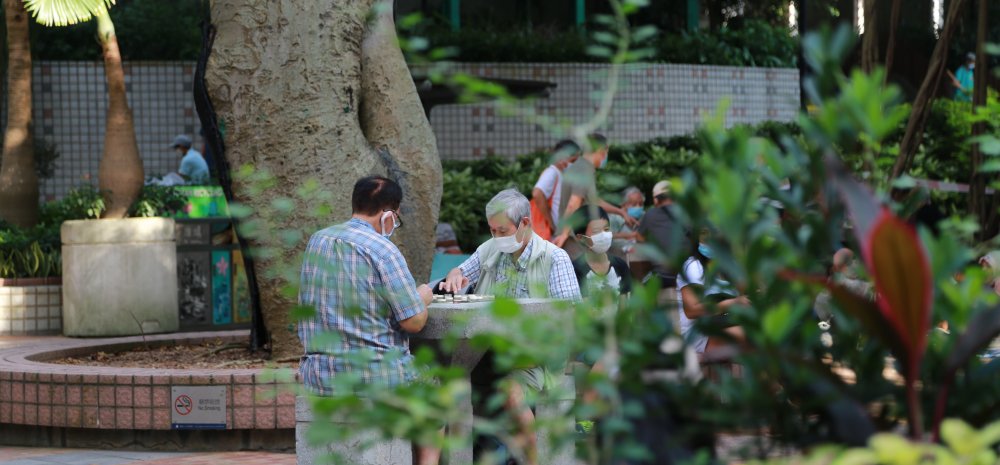
Alison Pang on Unsplash
2022 will be a year full of challenges and opportunities to transform metropolitan spaces
The dramatic consequences of Covid-19 in terms of our health, the economy, and social issues have not created new challenges. Rather, the pandemic has exacerbated the pre-existing inequality and tensions in our global, urban society. To paraphrase the current mayor of Bogotá, Claudia López, it seems that we suddenly discovered that big cities are not only places for production and consumption, but also spaces where millions of people have come in search of opportunities and a better life.
At Metropolis, the global network of major cities and metropolitan areas, we have taken a close look at the current situation in metropolises, and offer a stark warning in response. The pandemic has particularly worsened the vulnerability of low-income people in metropolitan areas. This is the case, for example, in urban agglomerations in African suburbs and certain parts of Asia, where it is impossible for people to access basic hygiene or practice social distancing. It is also leading to the exclusion of new sectors of the population in cities in the Global North: an entire sector of society emerged that depended on the informal economy, and was previously invisible. And of course, we should not forget how the gender gap and violence against women and girls have been accentuated during lockdown. As the mayor of Montevideo, Carolina Cosse, stressed during World Metropolitan Day, “the effects of the pandemic are not perceived by, and have not affected, all areas of society in equal measure”.
More specifically, lockdown showed us images of our cities that forced us to think seriously about basic issues such as the future of public space, mobility, adequate and affordable housing, and the limits of the smart city and the digital divide, among many other things. After an attempt to return to full normality, at the time of writing this article, Omicron has instead seen us return to distancing, taking care, and screens. But it is no excuse. After two years of pandemic, the time has come to focus on four key challenges—not only to adapt to the new normal (whatever that may be), but to make the necessary changes to transform urban spaces for future generations.
Four keys to transforming metropolitan space, right now!
Unstoppable urban growth is linked to inequality, a phenomenon that occurs frequently in metropolitan spaces. As a result, we need to provide metropolitan responses linked to ideas such as polycentrism and humanising metropolitan environments. 1.8 billion people live in cities with more than 1 million inhabitants. We must keep in mind that large urban areas carry a significant economic and population weight. For example, Seoul is home to almost 50% of the population of South Korea and this has a very clear consequence: the city is an increasingly important player, because many elements that affect dwellers’ daily lives require a metropolitan perspective (mobility, housing, waste management, etc.).
Whether reflected in government institutions or not, the metropolitan reality exists, and a metropolitan perspective or, at the very least, coordinated metropolitan policies, are essential to transform our cities.
The next challenge we face is public legitimacy. What legitimacy do metropolitan institutions have? How do they coordinate with national governments, with other levels of government, and with dwellers? Metropolitan governments should place more emphasis on active listening, trust and empathy during the decision-making process. Participatory governance is therefore essential.
Digital disruption, or in other words, the impact of digitalisation and digital transformation on the economy and service management. This affects every level of government, but it has an even more remarkable impact in metropolitan spaces. Technology is not only about collecting data and facilitating administrative procedures, but it is a tool that can improve people's quality of life. At a metropolitan level, technology has to bridge the urban-rural divide for everyone, especially women living in rural areas with limited access to basic services.
And finally, resilience. Not only from an environmental perspective, but social, economic and environmental resilience that go hand in hand. We need to see how metropolitan spaces can respond to many current problems, and solutions are always developed from the perspective of governance. Metropolis is a proponent of the idea that without good governance, metropolitan spaces cannot function.
At Metropolis, we are kicking off the year with a firm commitment to share our ideas about the most important metropolitan events and trends with you. We will also be taking the time to delve further into the data and stories on our blog—often buried in the information overload of the public agenda—and which explain the latest news from metropolitan spaces around the world. Please sign up to our newsletter and we look forward to working with you this year!
Octavi de la Varga, Metropolis Secretary General


